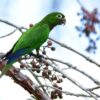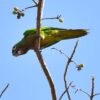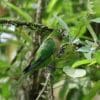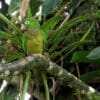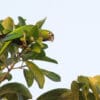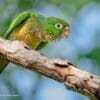Aztec Conure
Also known as:
Aztec Parakeet
Also known as:
Aztec Parakeet

Eupsittula

astec
Size:
26 cm (10.1 in)
Weight:
73-85 g (2.5-3.0 oz)
Subspecies including nominate:
two: E.a. astec, E a. vincinalis
Colour Adult:
E.a. astec: Both adults-smaller than Eupsittula nana but with longer wings; paler in colour, more yellow/green; paler brown on throat to abdomen; smaller beak.
E.a. vicinalis: Both adults-as in astec but brighter green in general; less brown underparts.
Colour Juvenile:
As in adults but with brown eyes.
Call:
Described as noisy and screechy in flight. Also high-pitched notes; sustained harsh twittering sounds with upward inflection. Also piercing chirps.
More Information:
Content Sources:
BirdLife International
Cornell Lab of Ornithology/Birds of the World
Parrots of the World, Forshaw, 2006
Captive Status:
Not often seen in captivity.
Longevity:
—
Housing:
—
Diet:
—
Enrichment:
—
Nest Box Size:
—
Clutch Size:
4 or 5 eggs.
Fledging Age:
—
Hatch Weight:
—
Peak Weight:
—
Weaning Weight:
—
World Population:
>500,000, decreasing.
IUCN Red List Status:
Least Concern
CITES Listing:
Appendix II
As conspecific with E. nana.
Threat Summary:
Is locally common to abundant in Belize and the commonest parrot in some localities, however, the population is suspected to be in decline owing to ongoing habitat destruction and unsustainable levels of exploitation.
Range:
E.a. astec: Caribbean slope from Veracruz, SE Mexico, to Almirante Bay region, W Panama.
E.a. vicinalis: NE Mexico, from C Tamaulipas south to NE Veracruz where mixes with astec.
Habitat:
Found in forest and forest edge (near rivers) in humid lowland zones up to 1100 m (3608 ft). Less frequent in larger tracts of rainforest and reported in arid areas (Veracruz) and pine forest, open country with scattered trees and plantations.
Wild Diet:
Prefers figs and fruits (Inga, Hura, Hieronyma and Bursera simaruba), also unripe tamarind pods and flowers of Albizia saman. Will utilize cultivated crops.
Ecology and Behaviour:
Large groups congregate after breeding or where food is abundant. Will mix with other species. Tree hollows used for nesting.
Clutch and Egg Size:
4 or 5 rounded eggs, 26.5 x 22.0 mm (1 x 0.8 in).
Breeding Season:
January-May, depending on location. Nest is in arboreal termitarium.
Related Links:
—
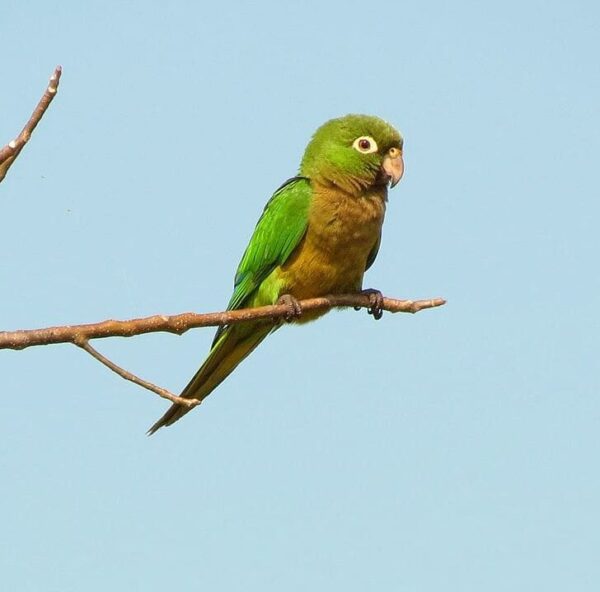
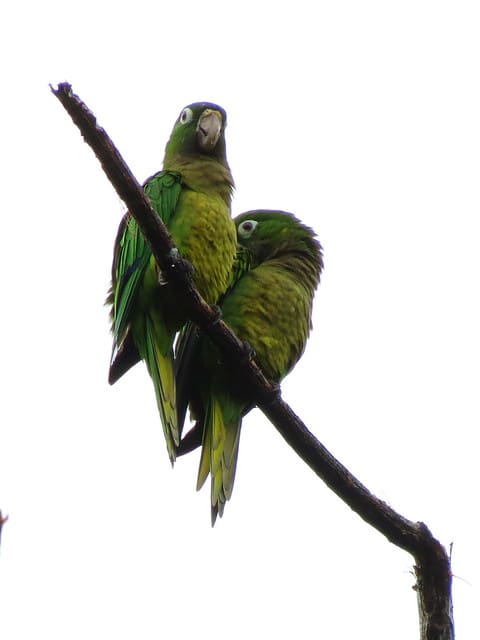
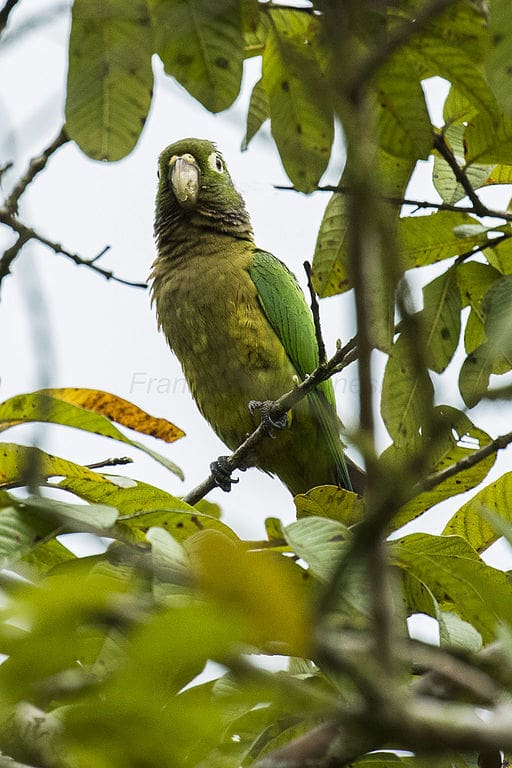
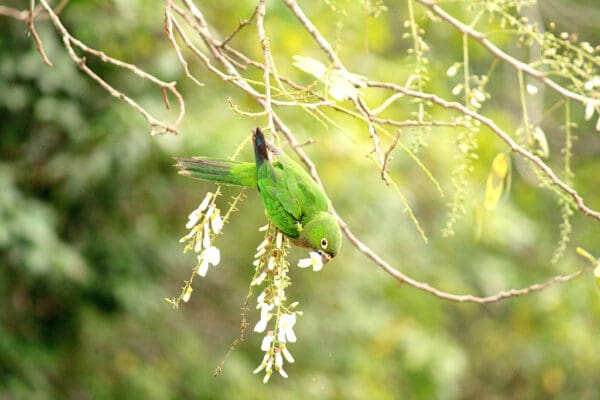
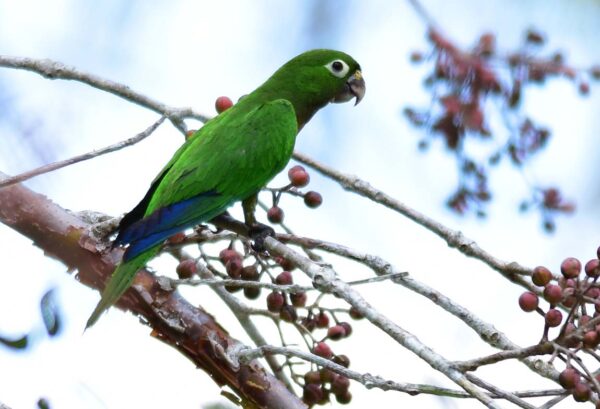
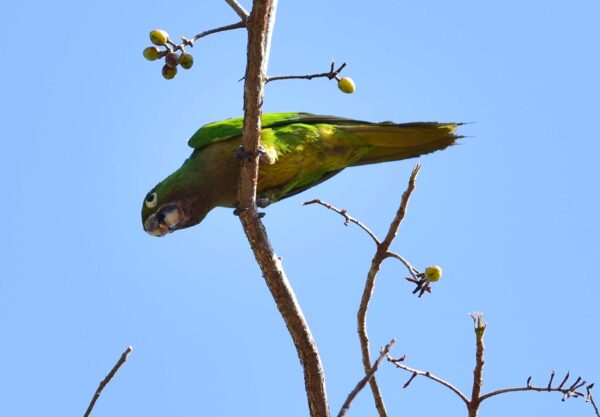
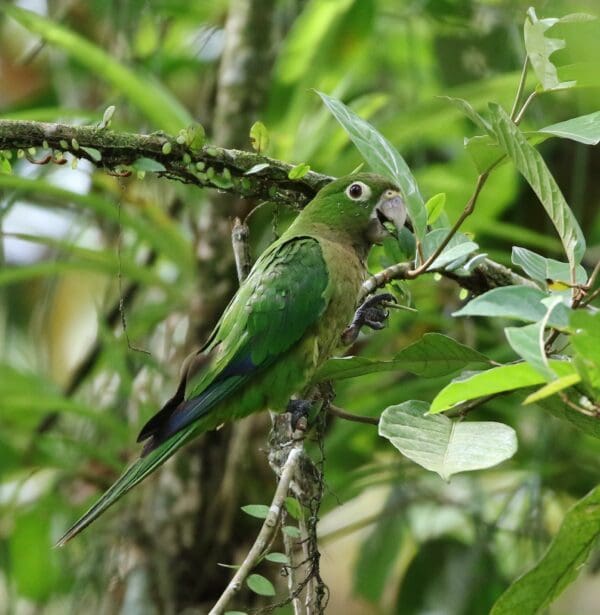
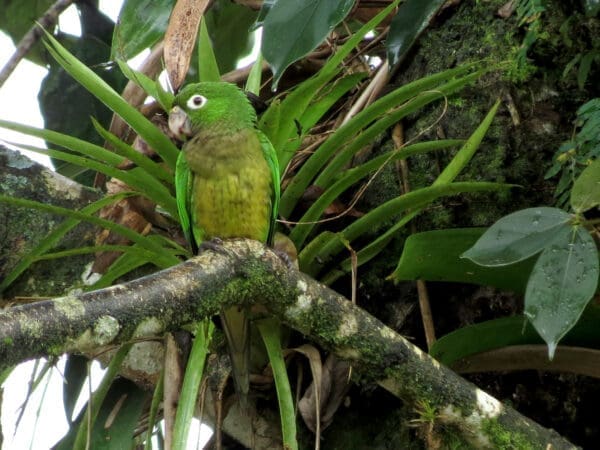
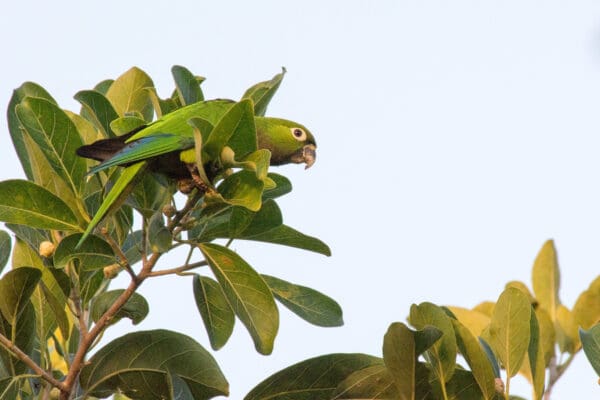
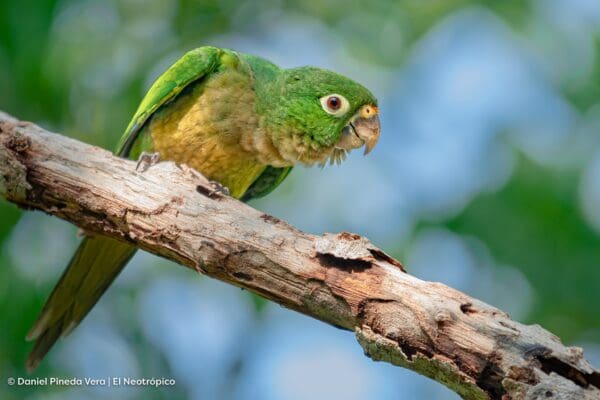
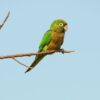
![© Katja Schulz [CC BY-SA 2.0] via Flickr Wild Aztec Conures perch on a limb](https://parrots.org/wp-content/uploads/2023/01/wpt_Aztec-Conure_2032-11-100x100.jpg)
![© Francesco Veronesi from Italy [CC BY-SA 2.0] via Wikimedia Commons A wild Aztec Conure perches in a leafy tree](https://parrots.org/wp-content/uploads/2023/01/wpt_Aztec-Conure_2032-6-100x100.jpg)
![© Walter Rodriguez from Berlin, Germany (parakeet Uploaded by Snowmanradio) [CC BY 2.0], via Wikimedia Commons A wild Aztec Conure feeds on blossoms](https://parrots.org/wp-content/uploads/1990/01/Aztec-Conure-Walter-Rodriguez-100x100.jpg)
